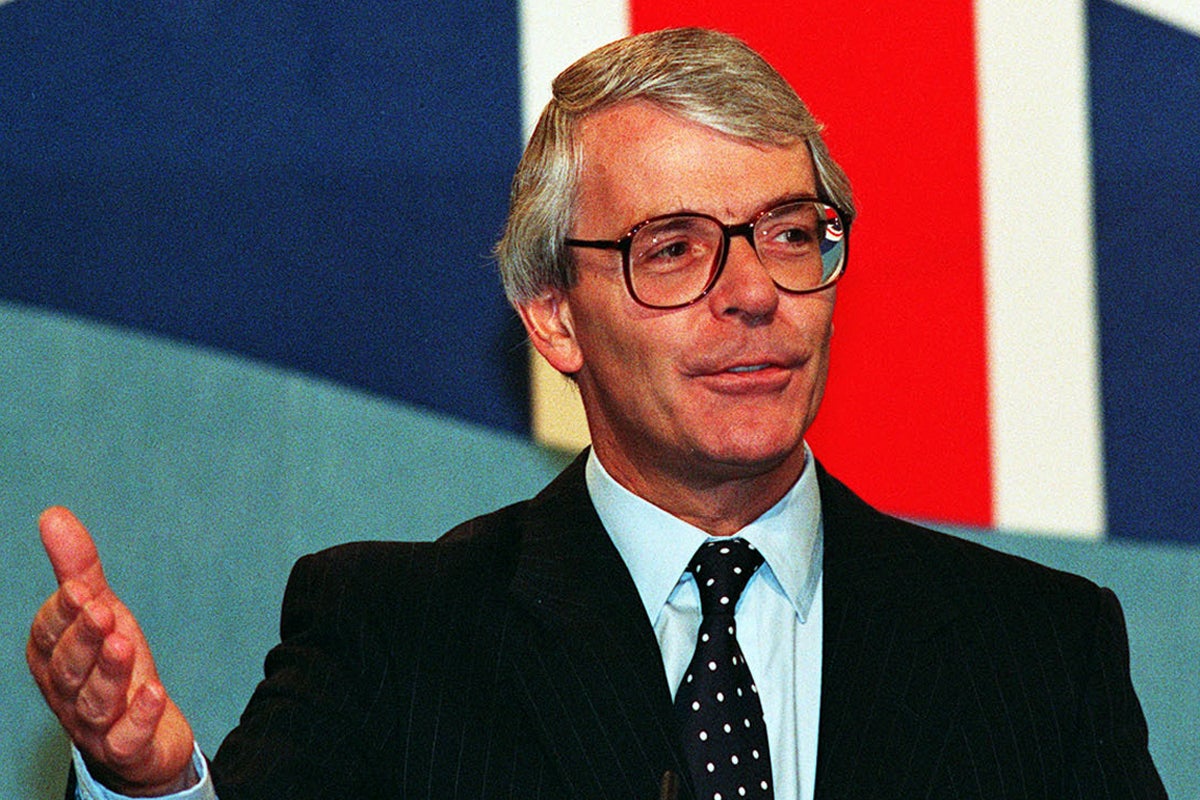Yet another Tory MP in a sleaze scandal takes us ‘Back to Basics’
MP Mark Menzies has been suspended by the Tories over allegations he used party funds to pay off ‘bad people’ who locked him in a flat, adding to the impression of a rerun of the Nineties sleaze that led to Blair’s Labour landslide, says John Rentoul


If there was one word that summed up the fate of John Major’s government as it slid towards record-breaking defeat in the 1997 election, it was “sleaze”.
This allowed Labour and the media to roll together a series of embarrassments about MPs’ private lives with more serious cases of financial wrongdoing into a single miasma of end-of-an-era rottenness. Now it is happening all over again.
Mark Menzies, the MP for Fylde, has been suspended while the Tory party investigates the allegations that he used campaign funds to pay off “bad people” who locked him in a flat. The party has known about the allegations (which Menzies denies) for three months, but only acted when they were reported last night.
Just two weeks ago, William Wragg, the high-ranking chair of a select committee and vice-chair of the 1922 Committee, admitted his part in a WhatsApp honeytrap. He confessed that he was “scared” that someone he met on a gay dating app “had stuff on me” so he gave him information about other MPs – and, after a short delay, resigned from his posts and from the parliamentary Conservative party.
After Peter Bone (kicked out of parliament after an investigation found he had bullied and was sexually inappropriate towards an aide, which he denies), Chris Pincher (forced to resign, for sexually harassing young men in the Carlton Club), David Warburton (ditto, after admitting to taking cocaine), the Tory party has been repeatedly let down by the personal conduct of its MPs.
It is beginning to feel like “Back to Basics” all over again.
That was the innocent-sounding theme of John Major’s Tory party conference speech in 1993. It was meant to tie together several ideas to try to relaunch the government after the setback of the ERM crisis the previous year. Major talked about “sound money, free trade, traditional teaching, respect for the family and respect for the law”, as well as the “old values”, including “decency”, which was taken by journalists to mean a return to social conservatism – and therefore an excuse to intrude into the personal morality of Tory MPs.
There followed a spate of stories about ministers behaving badly.
David Mellor, the national heritage secretary, resigned after his affair with Antonia de Sancha was revealed – although it was actually his holiday, paid for by the daughter of a PLO leader, that finally forced him out of office. Tim Yeo, an environment minister, resigned after it was reported that he had fathered a child outside his marriage. Various MPs in junior positions resigned after reports that they had had affairs with men under the age of consent for gay male sex, then 21.
But the parallels between then and now go further than that.
Not only was Major beset by sex scandals but several of his ministers got into trouble over their financial affairs – and “Back to Basics” handed the media the extra ammunition of hypocrisy. Several MPs were accused of taking cash to ask parliamentary questions: some admitted it, Neil Hamilton denied it and fought on. Jonathan Aitken resigned as chief secretary to the Treasury to clear his name on bribery charges but went to jail for perjury.
Rishi Sunak faces other questions about the financial affairs of his MPs. Nadhim Zahawi had to resign from the cabinet over his tax affairs. Most recently, Scott Benton, the Tory MP for Blackpool South, has resigned, forcing a by-election, after he was caught by a Times newspaper sting offering to lobby the government for payment.
Major’s government was also riven by ideological warfare, as he complained, when he thought the microphone was off, about the Eurosceptic “bastards” in his cabinet. These cabinet ministers – Michael Portillo, Michael Howard and Peter Lilley – were the tip of an iceberg of opposition to the European single currency in the Tory party. Major ended up pleading with Tory candidates in the 1997 election campaign not to “bind my hands” in negotiations with EU leaders.
Similarly, Sunak cannot catch his breath without another Tory accusing him of being wrong about immigration, tax or public spending. As well as by-elections caused by sex and financial scandals, Sunak has endured by-elections caused by policy disagreements, as expressed, for example, by Boris superfan Nadine Dorries and Chris “Net Zero” Skidmore.
Another big parallel between the preludes to the 1997 and 2024 elections is the Tory party’s reputation for economic competence. Under Major, it was destroyed by the devaluation of the pound in 1992, a national humiliation that did lasting damage. Before Sunak, it was trashed by Liz Truss in her mini-Budget in September 2022. Hunt and Sunak were drafted in to rescue the situation but the Tory brand cannot be saved in time for an election later this year.
Finally, the opposition: Tony Blair and Keir Starmer both junked their party’s recent vote-losing policies to make Labour a safe home for disaffected Tory voters.
The results look likely to be similar: an electorate desperate for change after a long period of Tory government (18 years and 14 years), and opinion polls again pointing towards a Labour landslide.
The story of Mark Menzies allegedly phoning a 78-year-old aide at 3.15am, added to William Wragg’s “mortifying” behaviour, takes us way back to the 1990s – and Back to Basics.






Join our commenting forum
Join thought-provoking conversations, follow other Independent readers and see their replies
Comments